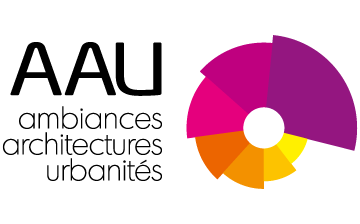MOBI’KIDS – Le rôle des cultures éducatives urbaines (CEU) dans l’évolution des mobilités quotidiennes et des contextes de vie des enfants. Collecte et analyse de traces géolocalisées et enrichies sémantiquement
MOBI’KIDS – The role of urban educative cultures (UEC) in the evolution of daily mobilities and contexts of the life of children. Collection and analysis of geolocated and semantically enriched tracks.
Financement : ANR - Projet de Recherche Collaboratif - Entreprise (PRCE)
Responsable(s) scientifique : Sandrine DEPEAU - Laboratoire ESO
Contrat de recherche terminé en décembre 2022
FR
Le projet MOBI’KIDS vise à comprendre les conditions de mobilités quotidiennes des familles, notamment l’évolution de celles des enfants (en cours d’autonomie) dans un contexte de transformations des modes de vie impulsés par les enjeux de la ville durable.
Étudiées dans leur contexte familial et environnemental, le premier objectif vise à expliquer la variabilité des conditions d’évolution des pratiques de la ville en étudiant des formes de « cultures éducatives urbaines » et le rôle des routines/informalités des expériences urbaines dans celles-ci. Pour y répondre, un second objectif contribue au développement des protocoles d’enquêtes (GPS) à travers un dispositif technologique hybride : de collecte associant des données de sources différentes (GPS, entretiens, données contextuelles et d’ambiances ; d’analyses complémentaires des traces combinant des données quantitatives/qualitatives et différents niveaux d’échelle pour 3 niveaux de lectures (informatiques, sémantiques, sensibles).
L’implication de l’équipe du CRESSON/AAU se concentre dans la spécification théorique et méthodologique du protocole des enquêtes relatives aux données sensibles / ambiances et l’analyse du corpus recueilli.
Equipe :
- UMR ESO
(DEPEAU Sandrine (resp. Scientifique), BAILLEUL Hélène, FEILDEL Benoit, MERICSKAY Boris, QUESSEVEUR Erwan, LEPETIT Arnaud, LAMBERTS Christine, ALLARD Théodora - UMR AAU-CRESSON
(THIBAUD Jean-Paul, MANOLA Théa, McOisans juL, AUDAS Nathalie, Boumoud Abdelhakim) - UMR LI
(DEVOGELE Thomas, ETIENNE Laurent) - UMR PACTE
(CHARDONNEL Sonia, ANDRE- Isabelle, VUAILLAT Fanny, TABAKA Kamila, ROBINET Nicolas, BENOIT Anne, JAMBON Francis) - ALKANTE
(LEPRINCE François, BEDEL Olivier, DURAND Nicolas) - RF-TRACK
(CHEREL Pierre, PELTIER Jacques, LE MER Michel)
EN
Funding: French National Research Agency (ANR)
The MOBI’KIDS projects aims to understand the conditions for the daily mobilities of families, including the evolution of those of children (who are learning independence) in a context of the transformations of lifestyles bolstered by the challenges of the sustainable city.
Studied within their family and environmental context, the first aim is to explain the variability of evolution conditions of urban practices by studying the forms of “urban educative cultures” and the role of the routine/informality of urban experiences within them. To answer that question, a second aim contributes to the development of survey protocols (GPS) with a hybrid technological device: for data collection, by associating data from different sources (GPS, interviews, contextual and ambiance data); for complementary analysis of the tracks, by combining quantitative/qualitative data and different scales to create three levels of reading (computing, semantic, sensitive).
The involvement of the CRESSON/AAU team focuses on the theoretical and methodological specification of the survey protocol regarding the sensitive/ambiance data and the analysis of the generated corpus.
Team:
- UMR ESO
(DEPEAU Sandrine (scientific supervisor), BAILLEUL Hélène, FEILDEL Benoit, MERICSKAY Boris, QUESSEVEUR Erwan, LEPETIT Arnaud, LAMBERTS Christine, ALLARD Théodora - UMR AAU-CRESSON
(THIBAUD Jean-Paul, MANOLA Théa, McOisans juL) - UMR LI
(DEVOGELE Thomas, ETIENNE Laurent) - UMR PACTE
(CHARDONNEL Sonia, ANDRE- Isabelle, AUDAS Nathalie, VUAILLAT Fanny, TABAKA Kamila, ROBINET Nicolas, BENOIT Anne, JAMBON Francis) - ALKANTE
(LEPRINCE François, BEDEL Olivier, DURAND Nicolas) - RF-TRACK
(CHEREL Pierre, PELTIER Jacques, LE MER Michel)
https://anr.fr/Project-ANR-16-CE22-0009
Retrouvez tous les contrats de recherche de l'équipe CRESSON
